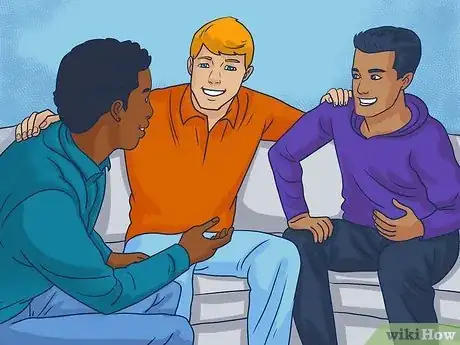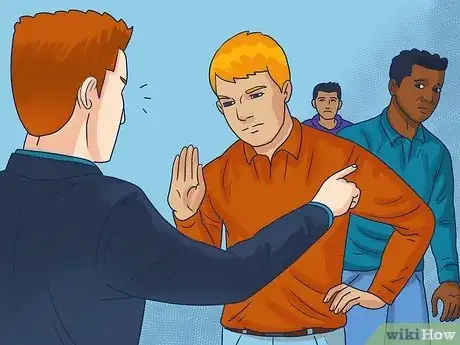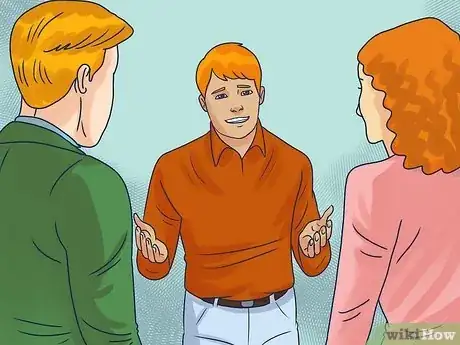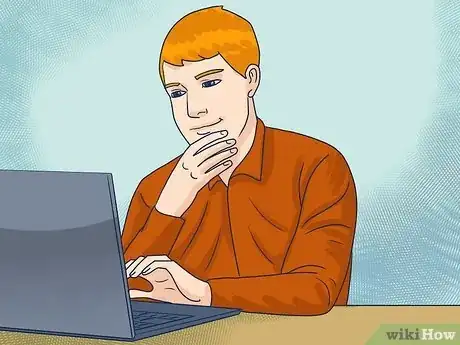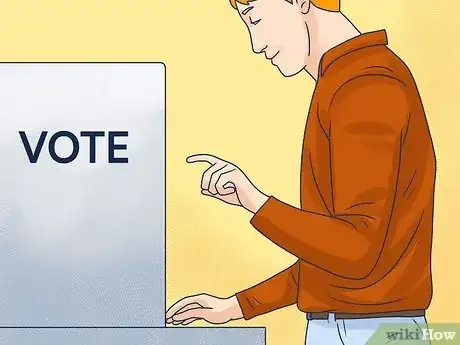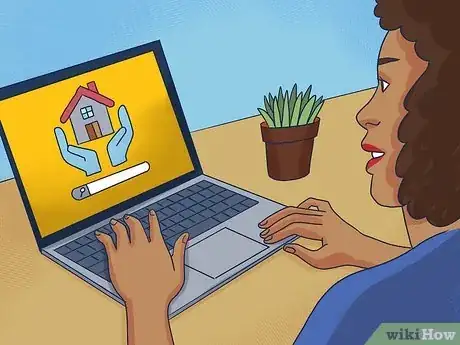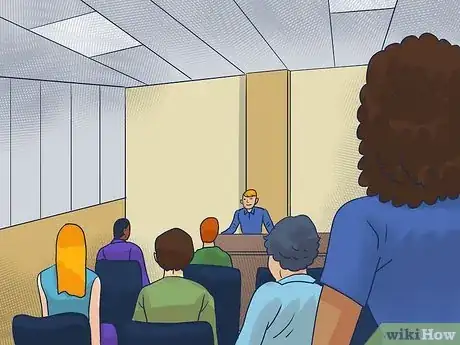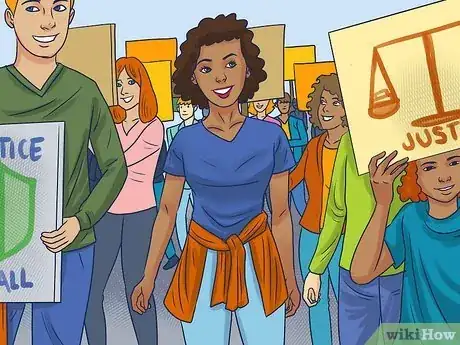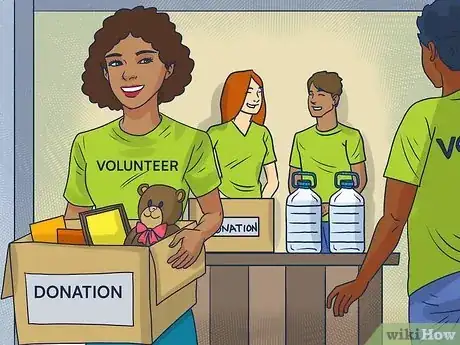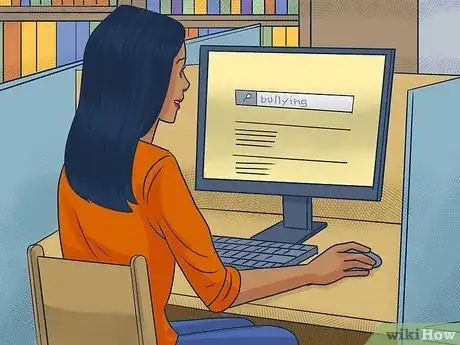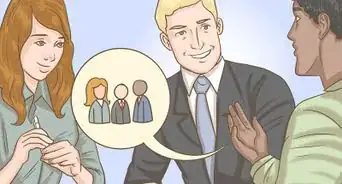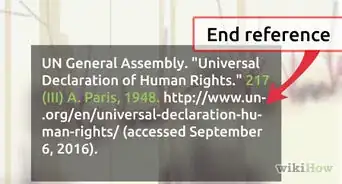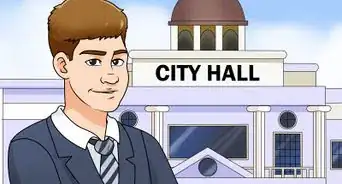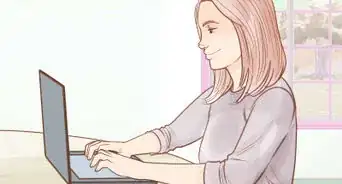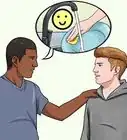This article was co-authored by wikiHow Staff. Our trained team of editors and researchers validate articles for accuracy and comprehensiveness. wikiHow's Content Management Team carefully monitors the work from our editorial staff to ensure that each article is backed by trusted research and meets our high quality standards.
There are 17 references cited in this article, which can be found at the bottom of the page.
This article has been viewed 72,789 times.
Learn more...
As the saying goes, life isn't fair. The world is full of injustice, from international politics, to unfair business practices, to how individuals treat each other in everyday life. However, just because there has always been injustice in the world doesn't mean there's nothing you can do about it. By taking individual actions, and partnering with other like-minded people, and staying informed, you can stand up to injustice and make the world a better place.
Steps
Taking an Individual Stand
-
1Set an example. An important first step in standing up to injustice is making changes in your own life.[1] This can be hard, but to the extent that you can, avoid contributing to things you think are unjust and try to be just in your own behaviors.
- For example, if you are concerned about racial discrimination, do some soul searching and think about how you can be fairer to people of other races in your own life. Are there racist stereotypes that are affecting your own behavior? If so, you can make a conscious effort to treat people more fairly.
- Nobody is perfect, and in the complex world we live in, it's difficult to avoid all injustice. If you pay taxes, chances are, some of that money is going to go toward something you disagree with, regardless of your beliefs. Do your best not to contribute to injustices in any way you can avoid, but don't let yourself be immobilized by a need for perfection.[2]
-
2Speak out. When you see injustice happening in daily life, don't just let it happen. Speak up and let the person behaving unjustly know that you think what they are doing is wrong.
- If you have friends who make jokes that are racist, for example, think about how you can let them know that you don't appreciate this.[3] If you are in a position where you influence hiring decisions in your workplace, do your best to ensure that discrimination isn't occurring in that process.
- If you see someone being bullied, you can stand up to this injustice by telling the bully to stop. If the bully doesn't stop, you can help the person being bullied out of the situation by walking them to somewhere safe or finding an authority figure who can stop the bullying behavior.[4]
- Speaking out against everyday injustices takes courage and can be difficult at first. If it's something really care about though, you will feel better for not keeping silent when it comes up.
Advertisement -
3Talk to people you know. Tell people you know about the injustice you have learned about. Many people probably won't be aware of the issue. Some people may know about it, but not see it in the same way you do. Talking to others is a good way to promote more justice in the world.[5]
- For example, if you are concerned about a new tax your city is considering that you think will make it hard on certain people or businesses, tell your friends about it. If you think it's wrong to eat meat, tell your friends and family about why that is. You may help them learn something, or you may even find other people who also want to take a stand on the issue.
- Be aware that some people are not going to want to hear what you have to say and are unlikely to change their views no matter what you may tell them. If someone is clearly not interested or doesn't want to discuss an injustice, don't press the issue. You can make people mad and waste a lot of energy talking to someone who is unwilling to consider your views.
-
4Contact people with the power to stop injustice. If you are serious about taking a stand against injustice, you need to make your views known outside your social circle. A great way to start is by contacting those responsible for the injustice.
- You can write a letter to the person or institution you think is responsible for the injustice, or that has the power to do something about it. For example, you can write a letter to your elected representatives urging them to do something about an injustice. Or, you can write to a company that you think is doing something unjust as part of its business practices, sharing your concerns and asking them to make a change.
- You can also sometimes make a phone call that serves the same purpose.
- Note that even in this age of electronic communication, many people still take old-fashioned paper letters more seriously than an email or online comments. Taking some time to print and mail a letter to your congressperson, for example, may make his or her staff more likely to take your comments seriously.[6]
-
5Contact the media. You can also use the news media to let people know about injustice. You can write a letter to the news media, such as a letter to the editor.
- Newspapers often publish well-written letters to the editor in both their print and online editions. This can be a great way to use media to let others know about injustices you care about.[7]
-
6Vote against injustice. Some injustices that are political or economic in nature can be affected by voting. It takes some time to learn about where your elected officials stand on the issue you have identified as an injustice. Use your power as a voter to promote more just government.[8]
- If you have the option, vote for candidates who want to do something about the injustice you have identified. If you think abortion is unjust, for example, research anti-abortion candidates you can support. If you think the minimum wage is unfairly low, look for candidates who have plans to raise the minimum wage.
-
7Vote with your dollars. In some cases, you can make purchasing decisions that promote justice. Don't buy from people or companies you believe are doing something unjust. Look for a way to use your consumer power to support justice.
- You can boycott, or refuse to buy from, companies that do things you think are unjust. Look for alternative options you can support instead.[9]
- For example, if you think that people who work in overseas factories are mistreated, look for companies that produce goods under conditions you think are more fair and don't buy from those you think abuse their workers. If a company contributes large sums of money to political campaigns you think are unjust, avoid supporting it.
-
8Make a contribution. Another way you can take a stand at an individual level is by contributing money to a group or campaign that is trying to correct an injustice. If you can afford it, consider a financial contribution to a group you think is doing good work.[10]
- Do some research and find a group you like. There are groups out there working on almost anything you can think of, whether its bullying in schools, gender discrimination, homelessness, or issues related to international politics.
Working with a Group
-
1Research groups dedicated to the issue. Many people find it most satisfying and effective to take stand alongside other people who feel the same way they do about an injustice. If you're interested in doing this, go online and research groups in your area that might be suitable.[11]
- There may be several groups, and you can choose the one that you like best. For example, if you think homelessness is unjust, you may find that there are both secular and church-based groups working to help the homeless in your community. Depending on your religious beliefs, you can choose the group you like best.
- On the other hand, you may find there isn't a group in your area dedicated to standing up to the injustice you are concerned about. If this is the case, you might want to consider starting your own group. There might be people you know who would be willing to join as you first get started, and you can build the group from there.
-
2Attend a meeting. After you find a group you think you might be interested in working with, find out when they meet and go to a meeting. This is a great way to learn more about the group and the people in it.
- Going to a meeting will give you a better sense of whether this group is right for you and if you want to be involved in the types of work they do to combat injustice.
- It's also a great way to meet people who feel the same way you do about the issue, which can help you feel more inspired to take action yourself.[12]
-
3Go to rallies or protests. Depending on the specific injustice you are interested in standing up against, some groups will organize large public events to speak out. Attending one of these can be a great way to take a public stand, and can be a lot of fun, too.
- Many organizations will set up marches or rallies and encourage the public to join in. This can be powerful way of attracting attention to an injustice and putting pressure on the government or businesses to do something about it.[13]
- Many protests are entirely peaceful and legal. Some groups, however, will engage in illegal actions to promote what they see as a more important form of justice. Some people will get themselves arrested in non-violent civil disobedience, for example, sitting down in an intersection and refusing to leave as a means of calling attention to an injustice.[14] Some will even destroy property at protests.
- Think carefully about what types of actions you are comfortable with. Are you willing to be arrested for your beliefs? Are you compelled enough by some injustice that you think more militant actions are appropriate? This decision is a personal one, but take some time to consider the consequences of any action you take before breaking the law.
-
4Volunteer. It may not be as exciting as a protest, but most organizations taking stands against injustice need people to work on other tasks as well. Volunteer to do anything you feel comfortable doing to contribute to the group's efforts.
- This could include any number of activities, from collecting signatures for a petition to raising money, from stuffing envelopes to making phone calls, or even just helping set up and put away chairs before and after meetings.[15]
- Sometimes, this work might not feel much like you're taking a big stand, but by contributing to an organization that is doing important work to remedy an injustice, you are making a difference.
Identifying Injustice
-
1Research the issue. Determining what is just or unjust is often a complicated matter. Regardless of the issue, understanding it thoroughly will make your voice more effective in standing up to injustice. Spend some time researching things you think are unjust on the internet or at your local library.
- Being informed will make you a more eloquent speaker on the subject. People will be more likely to listen to you when you speak out.
- Doing research on any issue, whether it's bullying, unfair labor practices, political corruption, or international relations will also help you develop an understanding of who or what is responsible for the injustice, and who has the power to do something about it. This can help you more effectively take a stand by directing your efforts at the appropriate parties.
-
2Study all sides. Take some time to understand both (or all) sides of the issue. Understanding the opposing view will also make you more effective and help you understand the issue better.[16]
- Try to keep an open mind when doing your research. You may find injustices where you didn't realize there were any. Or, you might find that something you thought was an injustice may not be one after all.
- Be fair to all sides, and let them speak for themselves. Try to find material online that presents both sides in an even-handed way, or pieces written by people who hold opposing views. You will understand the issue better if you read information from multiple, diverse sources.[17]
- For example, if you think abortion is unjust, don't just get your information from conservative sources that oppose abortion. If you are concerned about gun violence, don't just get your information from liberal sources that support gun control. Otherwise, you may end up with a distorted view of the issue, or miss key information.
-
3Learn about possible alternatives or actions to correct the injustice. When someone stands up to injustice, people often ask: "what's the alternative?" Spend some time looking into alternatives to the way things are that other people have suggested or are trying to put in place.
- For example, if you think the existing tax structure is unfair, look into other ways taxes could be collected and organized. If you think the way your government treats other countries is unjust, find out what alternative courses of action have been suggested by foreign policy experts.
- Saying "no" to injustice is an important first step, but being able to offer an alternative, positive vision can make your message more powerful.[18] This can also help you find ways to make a difference in your own life.
Expert Q&A
-
QuestionCan your employer fire you for opposing discriminatory treatment against a co-worker?
 James FettJames Fett is a Lawyer based in Ann Arbor, Michigan. With over 35 years of experience, he specializes in alternative dispute resolution, civil litigation, civil rights, class actions, commercial litigation, employment litigation, and labor & employment. James earned a J.D. from The University of Michigan Law School as well as an MBA and BA from The University of Michigan. In 2001, he was awarded a Certificate of Special Congressional Recognition, and the Washtenaw Trial Lawyers Association named him Lawyer of the Year in 1996. He’s also been named a Michigan Super Lawyer by Law & Politics Magazine and one of the ten Most Outstanding Lawyers of the Year by Michigan Lawyers Weekly.
James FettJames Fett is a Lawyer based in Ann Arbor, Michigan. With over 35 years of experience, he specializes in alternative dispute resolution, civil litigation, civil rights, class actions, commercial litigation, employment litigation, and labor & employment. James earned a J.D. from The University of Michigan Law School as well as an MBA and BA from The University of Michigan. In 2001, he was awarded a Certificate of Special Congressional Recognition, and the Washtenaw Trial Lawyers Association named him Lawyer of the Year in 1996. He’s also been named a Michigan Super Lawyer by Law & Politics Magazine and one of the ten Most Outstanding Lawyers of the Year by Michigan Lawyers Weekly.
Lawyer No. If you engage in protected activity, which includes reporting harassment, and the employer takes an adverse action against you because of it, then you have an excellent retaliation claim under state and federal law. If you oppose the discriminatory treatment of a co-worker or a subordinate, then that is protected activity and they can't retaliate against you for doing that.
No. If you engage in protected activity, which includes reporting harassment, and the employer takes an adverse action against you because of it, then you have an excellent retaliation claim under state and federal law. If you oppose the discriminatory treatment of a co-worker or a subordinate, then that is protected activity and they can't retaliate against you for doing that. -
QuestionWhat if the type of injustice is not illegal?
 Community AnswerMany injustices are legal. None of the methods in this article assume that the injustice is illegal. The legality of it is exactly why it can take so much work to stand up to. Most illegal injustices can be dealt with more easily by reporting the person breaking the law to the authorities.
Community AnswerMany injustices are legal. None of the methods in this article assume that the injustice is illegal. The legality of it is exactly why it can take so much work to stand up to. Most illegal injustices can be dealt with more easily by reporting the person breaking the law to the authorities. -
QuestionWhat do you do if your own adult kids are harassing and bullying you? Where can you go for help? Why there are no agencies that help parents in such situations?
 LibArtsPremed18Top AnswererThere are people and organizations that can help in these sorts of situations. If you are an elderly adult and are being abused by family members, that may constitute elder abuse and can be reported to and investigated by your state's Adult Protective Services (like CPS but for older adults). Even if this is not elder abuse, in any case, you can look for a child and family services agency or community mental health center in your area. These agencies have social workers and family therapists who are trained to help families navigate situations like this.
LibArtsPremed18Top AnswererThere are people and organizations that can help in these sorts of situations. If you are an elderly adult and are being abused by family members, that may constitute elder abuse and can be reported to and investigated by your state's Adult Protective Services (like CPS but for older adults). Even if this is not elder abuse, in any case, you can look for a child and family services agency or community mental health center in your area. These agencies have social workers and family therapists who are trained to help families navigate situations like this.
Warnings
- If you choose to take a stand by participating in protests, be aware that there is a possibility you could be arrested or injured. This is most likely to occur if you do something illegal, but even protestors trying to obey the law are sometimes swept up with those that aren't when lots of arrests are made. Be careful, and know the risks.⧼thumbs_response⧽
References
- ↑ http://drdavidhamilton.com/change-yourself-change-the-world/
- ↑ http://www.paulloeb.org/articles/tensuggestions.html
- ↑ http://www.theroot.com/articles/culture/2013/04/how_to_respond_to_a_friends_racist_joke/
- ↑ http://www.pacerkidsagainstbullying.org/kab/how-can-you-help/if-you-see-bullying/
- ↑ http://www.thestranger.com/seattle/deeply-embarrassed-white-people-talk-awkwardly-about-race/Content?oid=9747101
- ↑ http://www.worcester-amnesty.org.uk/Downloads/LetterWritingGuide.pdf
- ↑ https://en.reset.org/act/how-make-difference-%E2%80%93-tips-effective-activism
- ↑ http://www.huffingtonpost.com/nclr-action-fund/why-vote_b_5864300.html
- ↑ http://ctb.ku.edu/en/table-of-contents/advocacy/direct-action/organize-boycott/main
- ↑ http://www.people-press.org/2014/06/12/section-5-political-engagement-and-activism/
- ↑ http://www.campusactivism.org/becomeactivist.html
- ↑ http://www.campusactivism.org/becomeactivist.html
- ↑ http://www.worcester-amnesty.org.uk/Downloads/LetterWritingGuide.pdf
- ↑ http://plato.stanford.edu/entries/civil-disobedience/
- ↑ https://www.floridanurse.org/Resources/documents/BLILegToolkit2009.pdf
- ↑ http://www.nationalreview.com/article/418831/defend-position-you-must-understand-both-sides-dennis-prager
- ↑ http://www.people-press.org/2007/04/15/public-knowledge-of-current-affairs-little-changed-by-news-and-information-revolutions/
- ↑ http://selfsustain.com/wp-content/uploads/2012/07/The_Role_of_Psychology_in_Environmental_Campaigning_and_Activism.pdf
- ↑ https://www.activist-trauma.net/assets/files/burnout_flyer_rightway.pdf
